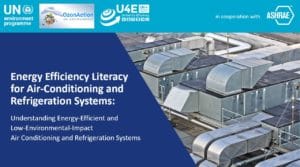View course flyer and enrolment instructions
Left unchecked, energy use from refrigeration and cooling is expected to rise by 90% from 2017 levels by 2050, resulting in greenhouse gas emissions equivalent to a third of all current emissions. Research indicates that moving to the best available technologies could reduce cumulative emissions dramatically.
 With this in mind, the Energy Efficiency Literacy for Air Conditioning and Refrigeration Systems e-learning course is designed to educate officials and ASHRAE members on opportunities to enhance energy efficiency and energy conservation in the mechanical cooling sector.
With this in mind, the Energy Efficiency Literacy for Air Conditioning and Refrigeration Systems e-learning course is designed to educate officials and ASHRAE members on opportunities to enhance energy efficiency and energy conservation in the mechanical cooling sector.
Developed by ASHRAE and the United Nations Environment Programme’s OzonAction and United for Efficiency teams, with funding support from the Kigali Cooling Efficiency Program, the course particularly targets National Ozone Officers and energy policymakers. It links energy efficiency with the refrigerant transition that is driven by the Kigali Amendment to the Montreal Protocol on Substances that Deplete the Ozone Layer.
Phasing down high global warming potential refrigerants, while simultaneously enhancing energy efficiency, unlocks many co-benefits, such as addressing a major source of peak demand on the electricity grid, offsetting some of the overall growth in energy demand, enabling greater access to cooling services as operating costs are reduced, and mitigating adverse impacts on the planet and the environment.
The course includes modules explaining:
- Why we need air conditioning and refrigeration.
- The processes that maintain spaces at lower temperatures.
- How air-conditioning and refrigerating system components work together and use refrigerants.
- How to avoid or correct problems to promote responsible use of resources, reduce operating costs, and create healthier environments and better buildings.
The content builds on a complementary Refrigerants Literacy Course to offer non-specialists in the field, such as facility managers, policymakers, and others involved in refrigerant issues from a non-technical perspective, a basic understanding of refrigerant types, policies, classifications and management practices.
In particular, the course helps National Ozone Units, the governing units in developing countries responsible for managing their country’s programs to comply with the Montreal Protocol, understand how to:
- Monitor the import and export of refrigerants and applications.
- Set national policies for refrigerant usage.
- Control ozone depleting substances’ emissions.
- Advise other authorities and private sectors on the technology.
- Design and implement a national refrigerant management plan.
A further course, Sound Management of Refrigerants, reviews best practices, ASHRAE standards and refrigerant terminology for air-conditioning and refrigeration specialists. It covers:
- The principles of refrigerant recovery, recycling, and reclaiming.
- Lubricants, their properties and applications, including compatibility issues with various refrigerants.
- Safe handling, service, and installation of refrigeration equipment utilizing modern refrigerants.
It also provides an introduction to refrigerant management programmes, certification schemes and relevant policies and regulations.
More information on the Energy Efficiency Literacy course and details of how to enrol can be found in the course flyer which can be downloaded from the OzonAction website.
View course flyer and enrolment instructions
Officials interested in extending their knowledge in this area should contact OzonAction for details of how to access the course materials:
Amr M. Abdelhai
Programme Officer
OzonAction
Law Division
United Nations Environment Programme
1 rue Miollis, Building VII
75015 Paris, France
Telephone: +33 1 44 37 76 16
Am**********@**.org
www.unep.org/ozonaction


I would like to pursue this course
Dear Duke. Thank you for your interest in this course. Details on how to enrol can be found on the course flyer which can be downloaded from the OzonAction website at: https://www.unep.org/ozonaction/resources/factsheet/energy-efficiency-literacy-online-learning-covering-basics-air-conditioning-and